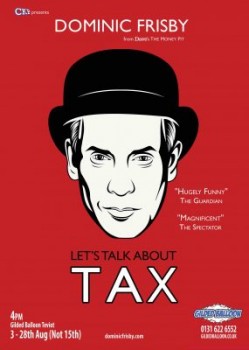We are developing the social individualist meta-context for the future. From the very serious to the extremely frivolous... lets see what is on the mind of the Samizdata people.
Samizdata, derived from Samizdat /n. - a system of clandestine publication of banned literature in the USSR [Russ.,= self-publishing house]
|
What have I done wrong, really, except make money; succeed? All these rules and regulations: arbitrary. Chalked up by politicians for their own ends. And these fines you’re always going after: where do they go? The poor? No. The treasury; the government. It’s taxation by other means. […] I make the system run. I have contributed hundreds of millions of dollars in taxes and philanthropy. I employ hundreds of people directly. Thousands indirectly. What do you do? Nothing besides suck from the municipality; feed off of it. And in exchange what? Keep order? You’re a traffic cop hiding in Federal robes.
So says hedge fund manager Bobby Axelrod to U.S attorney Chuck Rhodes in the finale of the TV series Billions. It is worth a look. The government officials end up looking more like the bad guys than the business people.
Rhodes’ response: “You’re sure to become president of the libertarian club of Danbury Federal prison, ’cause no matter what you say, that’s where you’re ending up.”

Flourish. Enter CAESAR; ANTONY, for the course; CALPURNIA, PORTIA, DECIUS BRUTUS, CICERO, BRUTUS, CASSIUS, and CASCA; a great crowd following, among them a Soothsayer.
Here’s a newsflash for Marvel: race-baiters and gender warriors who complain endlessly about the “lack of diversity” in comic books don’t buy comic books. They’re interested in identity politics, not fun. When your customers — lifelong comic fans — pick up the latest issue to find a smorgasbord of irrelevant, hectoring social and pop culture commentary, they probably won’t buy the next issue. Not because they’re sexists and racists, but because the stuff you are publishing sucks.
– Charlie Nash at Breitbart.
PS. I haven’t yet seen the latest Captain America film but it is on the list of ones I do want to see. Any recommendations?
Today, I am in my usual last Friday of the month tizz, because this evening I have an event in my home, and I am, as usual, behind in my preparations. This particular event is more than usually tizzual, on account of it being not a sit-down talk but a stand-up performance, by Dominic Frisby. Frisby is honouring my home with an early dry run of his forthcoming Edinburgh Festival show, Let’s Talk About Tax, which he will be performing in Edinburgh from Aug 3rd until August 28th.

I am not doing this blog posting because I need more people to come to my home this evening. I can fit in a few more, but I already have a decent number of acceptances. Nor am I doing this blog posting to tell you what a brilliant show this is. It is being done by the always entertaining and always thought-provoking Dominic Frisby, so I expect it to be entertaining and thought-provoking. But meanwhile, I haven’t yet seen it.
No, what I want to do here is simply to praise Frisby for the fact of this show. Even if – worst case – it flops in Edinburgh, which I don’t think it will, but even if it does, … well played sir! The fact that Frisby is sallying forth to the Edinburgh Fringe, one of the key facts of British showbiz life where would-be upwardly-mobile entertainers all vie with one another to make their mark as writers and performers, and that he will there proclaim the sort of pro-free-market notions and crack the sort of pro-free-market jokes that seldom get spread or cracked in this arena or similar arenas, is cause for praise in itself. The way to get anything started is to start, and this is a start. In the illustration above, Frisby is wearing a hat. Were I now wearing a hat, I would take it off to him.
I did an earlier posting here, praising Frisby’s excellent book Life After The State. Today is, see above, a busy day for me, so to save me the bother of making the same point in different words, please allow me to quote myself and make a point I made in that earlier posting, in the same words:
If we think that showbiz people typically proclaim bad political ideas, then our task is to persuade such people to think better and to proclaim better ideas, rather than us merely moaning that such people somehow have no right to be heard opining at all, about anything except showbiz. Maybe it is in some ways true that celebrity opinion-mongers shouldn’t be paid attention to, as much as they are. But they are, if only because being paid attention to by lots of people is the exact thing that these people specialise in being very good at. Maybe people are foolish to get their foolish political ideas from politically foolish showbiz people. But many do. Whether we like it or hate it, recruiting at least a decent trickle of showbiz people is a precondition for us achieving any widespread public acceptance of our ideas.
I rather think that this show marks a new moment in Frisby’s career. At his website, he describes himself as a Financial writer, comedian, actor of unrecognized genius and voice of many things. The “voice of many things” bit concerns his voice-over work, often to be heard on British TV. But note the “financial writer, comedian” bit. Hitherto, Frisby has tended to keep these two activities distinct from one another. As a speaker and writer on libertarian friendly matters he is always witty and entertaining, but he hasn’t, when doing that stuff, gone straight for laughs. He has basically been arguing and informing. Yes, with a smile on his face and plenty of reader and audience amusement as well as thought-provocation. But basically, he has done comedy for laughs and when being serious he has been serious. This Edinburgh show, on the other hand, looks like it may mark the moment in Frisby’s career when he seeks to combine his financial thinking and talking and writing with comedy.
I wish Dominic Frisby all possible success in this enterprise, and hope that others follow where he is leading.
Famous actor Mel Gibson said, “Fucking Jews. The Jews are responsible for all the wars in the world”, but give him a break, he was drunk at the time. And he was sorry afterwards, like he always is.
Famous director Ken Loach was presumably sober and certainly unapologetic when he said, “If there has been a rise [in anti-semitism] I am not surprised. In fact, it is perfectly understandable because Israel feeds feelings of anti-Semitism.”
What a wonderful coming-together this ceremony yesterday must have been:
Cannes 2016: Ken Loach’s I, Daniel Blake wins Palme d’Or
Accepting the festival’s top prize from actor Mel Gibson, Loach said: “We must give a message of hope, we must say another world is possible.
“The world we live in is at a dangerous point right now. We are in the grip of a dangerous project of austerity driven by ideas that we call neo-liberalism that have brought us to near catastrophe.”
Gibson to present, Loach to receive this prize: the judges’ choice at the world’s leading film festival.
The BBC’s Japan Correspondent, Mr Rupert Wingfield-Hayes, has written about his (thankfully brief) detention in North Korea after covering the visit of three Nobel Laureates. Working for the Socialist Monster clearly did not impress the North Koreans.
He tells us that he was asked if he thought that Koreans spoke like dogs, after he wrote that a North Korean official ‘barked’ at him. He was asked if he thought Koreans were ugly, as he referred to an official as ‘grim-faced’. He could not have known that he would only be detained for 10 hours, which is a shorter time than some get in jail for not paying the TV licence and a resultant fine.
His ordeal developed with an ominous introduction:
Two of our old minders now appeared at the door.
“We are taking you to meet with the relevant organs,” they proclaimed. “All will become clear.”
It did not become clear, as his surreal interrogation showed (emphasis added).
“Do you think Korean people are ugly?” the older man asked.
“No,” I answered.
“Do you think Korean people have voices like dogs?”
“No,” I answered again.
“Then why do you write these things?!” he shouted.
I was confused. What could they mean? One of the articles was presented to me, the offending passage circled in black marker pen:
“The grim-faced customs officer is wearing one of those slightly ridiculous oversized military caps that they were so fond of in the Soviet Union. It makes the slightly built North Korean in his baggy uniform comically top heavy. “Open,” he grunts, pointing at my mobile phone. I dutifully punch in the passcode. He grabs it back and goes immediately to photos. He scrolls through pictures of my children skiing, Japanese cherry blossom, the Hong Kong skyline. Apparently satisfied he turns to my suitcase. “Books?” he barks. No, no books. “Movies?” No, no movies. I am sent off to another desk where a much less gruff lady is already looking through my laptop.”
It turned out that his interrogators construed his prose as ‘grim-faced’ = ‘ugly’ and took ‘barks’ literally. Odd really, as I assumed that they had eaten all the dogs in North Korea in the 1990s famine.
His theory as to why he was detained in quite simple:
Why did they choose to detain and expel me? My best guess is that someone high up decided my reporting had endangered the success of the Nobel laureates’ visit. Pyongyang yearns for recognition. Their trip was of great importance to the government. The three Nobel laureates were shown the very best of the country. They met its brightest students. Our coverage was a threat to that plan, and an example needed to be made.
He was very much luckier than any Korean and many Westerners detained in North Korea.
And those three Nobel Laureates’ visit? How smart do you have to be to better understand North Korea?
Oliver Stone is like a weird version of ouroboros: not so much a serpent swallowing its own tail but rather a serpent with its head jammed up its own arse, a conspiracy theory propagandist for some of the vilest tyrants and thugs on this planet.
And I have never made any secret of the fact I regard Edward Snowden as a hero.
Therefore I am aghast to see that Oliver Stone, of all people, has made a movie about Snowden. Suffice to say I do not hold out much hope.
As linked to by two different posters at Instapundit and semi-reformed Trekkies everywhere, Paramount Pictures, in the course of a claim against the makers of a film set in the Star Trek universe, are claiming to own the copyright on the Klingon language. Thirty years ago linguist Marc Okrand was hired to take the snatches of made-up Klingon dialogue in the early Star Trek movies and flesh them out into a useable language. This he did. The idea took off and all sorts of people since then have learned Klingon to some degree for fun and intellectual stimulation.
A press release from the Language Creation Society says,
We firmly believe that conlangers should receive credit for their work. Specific works describing a conlang, such as the Klingon Dictionary, Living Language Dothraki, or Ithkuil website are creative works in their own right, entitled to full legal protection. So are works that are in a conlang, such as Klingon Hamlet, Esperanto poetry, Ithkuil music, and Verdurian stories.
However, a constructed language itself is not protected, and should not be. Copyright law is simply too blunt a tool for this.
Allowing copyright claims to a language would create a monopoly on use extending far beyond what is needed to protect the original work or to claim credit for the language’s creation. The potential threat of a lawsuit for merely using a conlang, or creating new works to make it more accessible, has a chilling effect; it makes conlangers, poets, authors, educators, and others less likely to build on and enjoy each others’ work, to the detriment of conlanging in general.
We believe that everyone has the right to use any language — including conlangs — without having to ask anyone’s permission. We hope that our participation in this lawsuit will help to make this belief into legal precedent.
Marc Randazza’s diverting amicus curiae brief on behalf of the Language Creation society is here.
I’m not going to do it. I AM NOT going to do it. I am not going to say “Qapla’!”
Except I just did. You will have deduced that I am sympathetic to one side of the case. But there is another. Property rights matter. Why should a bunch of flakes and dilettantes reap what another sowed? Why shouldn’t they pay a fee, in person or under licence, for the privilege of using Klingon just as they pay, directly or indirectly, to use a computer program? Let’s discuss this like Klingons. Which need not necessarily mean with a bat’leth.
Reports from France indicate that someone in Toulouse who went up their attic to fix a leak found an old Caravaggio worth a reputed £94,000,000 lying around.
The picture is rather grim, it shows the Jewish fighter Judith beheading Holofernes, an Assyrian general. It also seems rather close to the bone (as it were) for these times, I would ask Holofernes what he thought, but…
Sadly, the French State gets the first option on buying it.
Armageddon approaches!
Brexit could bring an unhappy ending for UK’s Oscar nomination bonanza
At first glance, Carol and Get Blake! do not appear to have much in common. One is an Oscar-nominated period drama about sapphic romance set in the lush interiors of upper-middle-class 1950s Manhattan, the other a French science fiction cartoon about alien squirrels. And yet both might never have been made were it not for EU funding.
But while one can just about imagine surviving without Get Blake, which was the centrepiece of a tabloid row about dreadful Europeans wasting our hard-earned British money on pointless film and TV projects in August, it is doubtful whether many right-minded Brit cineastes would be willing to dispense with Todd Haynes’s treasured drama about a love affair between Cate Blanchett’s opulent housewife and Rooney Mara’s wide-eyed department store ingenue.
If Brit cineastes would not be willing to dispense with EU-funded dramas starring Cate Blanchett and Rooney Mara, that must mean that in the event of a Brexit the rest of us would have to dispense with Brit cineastes.
Sounds good. Armageddon outta here.
Aka Stealth Bomber Yacht?:

I came across this very superior yacht because it was written up and pictured up in the Daily Mail, among many other www places.
It is the work of this guy:
Long distances are achievable with reduced out-of-water drag and stormy ocean conditions would incur virtually no slamming. Improved efficiency is driven by elevated hydrofoil propulsion and would be an inherent performance benefit of this type of design.
Long distance, smooth travel through rough water at high speed: the key performance attributes of this new motor yacht design.
Yes, sadly this is only, as yet, a yacht “design”. This is a “concept yacht”.
Notions like this are why the world needs rich people. Their job is to check whether stuff like this actually works, at their own risk and at their own expense. The rest of us can then pile in and share the fun.
This thing should star in the next Bond movie, “smooth travel through rough water at high speed” being the very definition of James Bond’s world.
America is truly the land of opportunity, even multimillionaire actors can be victims deserving special treatment.
A commenter called Joshinca, commenting on this post about the Oscars, by Roger Simon.
I know this might seem a bit contrarian-for-the-hell-of-it, and I might miss out, but these days a good rule of thumb for me is that if a film has won an Oscar, then there is a more than trivial possibility that it sucks in some way. They resemble Nobel Peace prizes, almost.
|
Who Are We? The Samizdata people are a bunch of sinister and heavily armed globalist illuminati who seek to infect the entire world with the values of personal liberty and several property. Amongst our many crimes is a sense of humour and the intermittent use of British spelling.
We are also a varied group made up of social individualists, classical liberals, whigs, libertarians, extropians, futurists, ‘Porcupines’, Karl Popper fetishists, recovering neo-conservatives, crazed Ayn Rand worshipers, over-caffeinated Virginia Postrel devotees, witty Frédéric Bastiat wannabes, cypherpunks, minarchists, kritarchists and wild-eyed anarcho-capitalists from Britain, North America, Australia and Europe.
|






